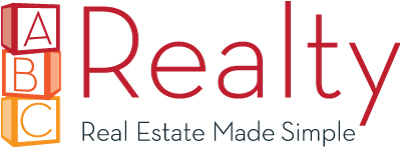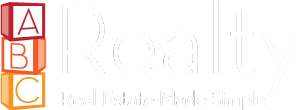In this continuation of our last blog post we will discuss potential solutions to the problem of policing, property, and racial inequality in Minnesota. For a quick recap, we discussed the intersection between Housing and Policing by looking at the history of Policing in the United States. Policing started not as a system to protect the citizenry but rather the property of business owners and later government institutions. If you haven’t already, please read part one of this series as we will be discussing potential solutions for the problems put forth in part one.
How can we as a community prevent something like the murder of George Floyd from occurring again? If you have been following the news surrounding Minneapolis city council’s plan to disband the police department then you know the current sentiments and arguments going forward. While it is important to acknowledge the role of policing in the betterment of Black lives in Minnesota we must also acknowledge the other facets of Black life here.
Here at ABC Realty we recognize the impact home ownership has on nearly all of the facets of life as highlighted by the NAACP. Having stable housing is necessary for future success. It’s known that a large portion of White-American’s wealth can be directly traced to home ownership. This makes sense because owning a home is an asset as opposed to renting a home. According to the NAACP’s report, In 2017 the median household income for White people living in the Twin Cities was $82,371, compared to $39,851 for Black residents. When compared to home ownership we can see a correlation where White Minnesotan’s own homes at 71.6%, which is above the national average, compared to 24% for Black Minnesotans, which is well below the national average for Black-Americans at 41.7%. If we look at rent payments we see they account for at least 30% of annual household income for more than half of Black renters (55%) and 43% of White renters. With the higher proportion of Black renters we can see that much of the wealth of Black Minnesotans is leaving their households.
While those statistics are jarring many of you may be asking yourselves how is home ownership going to stop the police from killing Black people? With stable housing and home ownership Black Minnesotans are provided one, an asset which has the potential to grow. Two, a stable housing not subject to the whims of a landlord. And Three, a stable address which is necessary for both employment, voting, and education. With the vote for dismantling MPD potentially coming to the ballots this November it is more important than ever for Black Minnesotans to have a say in this decision. This coupled with community based policing could very well change the landscape of the Twin Cities forever.
There are many hurdles preventing Black Minnesotans from becoming homeowners, from insensitive credit systems to unfair Unlawful Detainer laws. One immediate and often unrecognized issue showed its face in the reporting of the burning of East Lake Street. For those of you who followed the Burning of East Lake street, you may have seen pundits remark at how the protesters were burning their own neighborhood. Many of these one dimensional arguments neglect to highlight the fact that East Lake street is a neighborhood in the middle of being gentrified. Much like Payne Avenue in St. Paul’s Eastside, East Lake street was a neighborhood left by Minneapolis to fend for itself with little investment from the city up until recently. Within the last decade East Lake street has transformed from a primarily immigrant and lower income neighborhood to one that is seeing an overwhelming influx of high end developers and young professionals. While we advocate that a healthy neighborhood looks like one with a variety of incomes and backgrounds, it is obvious to see that East Lake is not veritable ‘jungle’ but rather a neighborhood with a rapidly changing ‘climate’. With the sudden investment and prioritization of new migrants over old tenants, old East Lake street is seeing many of its residents fleeing gentrification. Instead of affected communities staying in their neighborhoods and having a say in what happens there we see them unable to live there due to rising costs.
Again we come to the question of what can we do to combat this? With the ‘this’ turning into something resembling the mythological hydra as opposed to simple police brutality. The solution, at least the one we practice here at ABC Realty, is to get people into their own homes. Our realtors at ABC Realty reflect our community which is primarily of color and lower income. Between 85%-95% of our buyers are first time home buyers, 90%-98% are people of color, and our average sale price hovers around $240,000 compared to the median sale price of $295,000. By working within our community we are ensuring that the people that live here can make roots here and ensure that they continue to contribute to what makes this community attractive, whilst also holding our elected and appointed officials accountable for ensuring our safety.
That being said, we still acknowledge that home ownership is not the only solution nor is it realistic for everyone. That is why, through our work in East side Housing Justice, we have attempted to tackle housing issues from as many angles as possible through our film series’s to having representatives speak at panels. Having a place to call home is not exclusive to property owners and home ownership is just one facet for addressing housing inequality within the Twin Cities. If you are interested in learning more about other housing issues, follow East Side Housing Justice on Facebook and read this article about Minneapolis’ new zoning laws that allow for more gentrification to take place.

